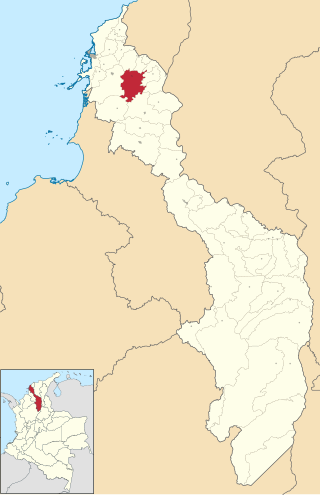Palenquero
| Palenquero | |
|---|---|
| Native to | Colombia |
| Ethnicity | 3,500 (no date)[1] |
Native speakers | (500 cited 1989)[2] |
Spanish Creole
| |
| Language codes | |
| ISO 639-3 | pln |
| Glottolog | pale1260 |
| ELP | Palenquero |
| Linguasphere | 51-AAC-bc |
 | |
Palenquero (also palenque) is a Spanish-based creole language spoken in Colombia. Palenquero is the only Spanish-based creole in Latin America.[3] The ethnic group which speaks this Creole consisted of only 3,000 people in 1998. Palenquero is spoken in Colombia, in the village of San Basilio de Palenque which is southeast of Cartagena, and in some neighborhoods of Barranquilla.
History

The village was formed by escaped slaves (Maroons) and sometimes Native Americans around 1604 under the leadership of Benkos Biojo. Since many slaves had not been subjected to a lot of contact with people of European descent, the palenqueros spoke Creole languages constructed from the Spanish language and their own African ones.
Spanish speakers are usually unable to understand Palenquero. Ten percent of the population under 25 years of age spoke Palenquero in 1998. It is more commonly spoken by the elderly. There are some influences from Kongo, which is spoken in the Democratic Republic of Congo. Palenquero words like "ngombe", which means cattle, are found in several Bantu languages.
Vocabulary
Some words in Palenque:
- burú-silver, money
- ngombe-cattle
- ngubá-peanut
- posá-house
- tambore-drum
- mai-mother
- bumbilo-garbage
- chepa-clothing
- chitiá-to speak
- ngaina-chicken
- tabáko-cigarette
- hemano-brother
- onde-where
- pueta-door
- ngolo-fat
- flo-flower
- moná-child
- ceddo-pig
- cateyano-Spanish/Castillian
- foratero-outsider
- kusa-thing, stuff
- cuagro-neighborhood cohort
Sample
The Lord's Prayer in Palenque:
- Tatá suto lo ke ta riba sielo,
- santifikaro sendá nombre si,
- miní a reino sí, asé ño boluntá sí,
- aí tiela kumo a sielo.
- Nda suto agué pan ri to ma ría,
- peddona ma fata suto,
- asina kumo suto a se peddoná,
- lo ke se fatá suto.
- Nu rejá sujo kaí andí tentasión nu,
- librá suto ri má. Amén.
References
- ^ Palenquero at Ethnologue (16th ed., 2009)

- ^ Palenquero at Ethnologue (18th ed., 2015) (subscription required)
- ^ Romero, Simon (2007-10-18). "San Basilio de Palenque Journal - A Language, Not Quite Spanish, With African Echoes - NYTimes.com". www.nytimes.com. Retrieved 2010-02-13.
